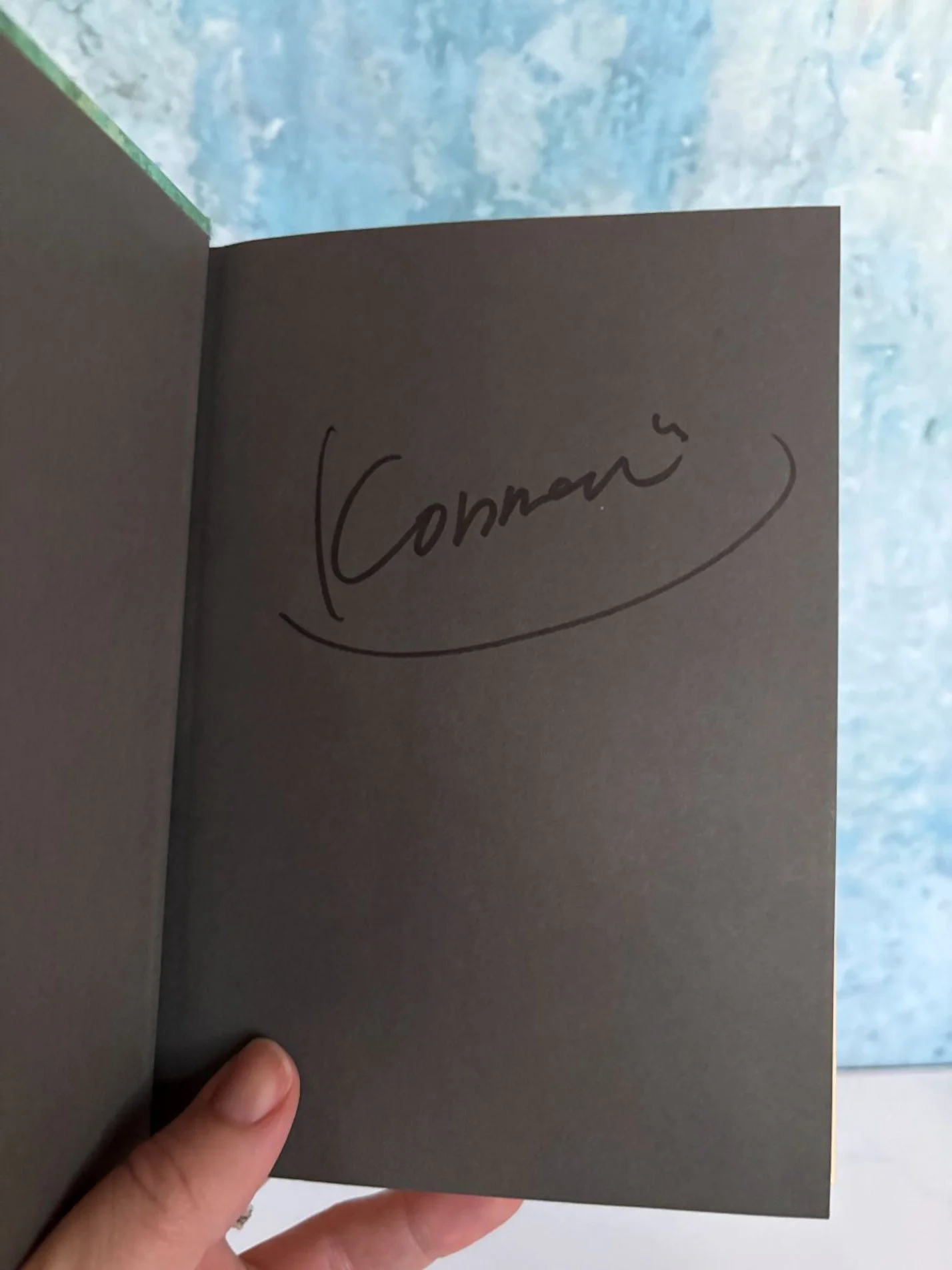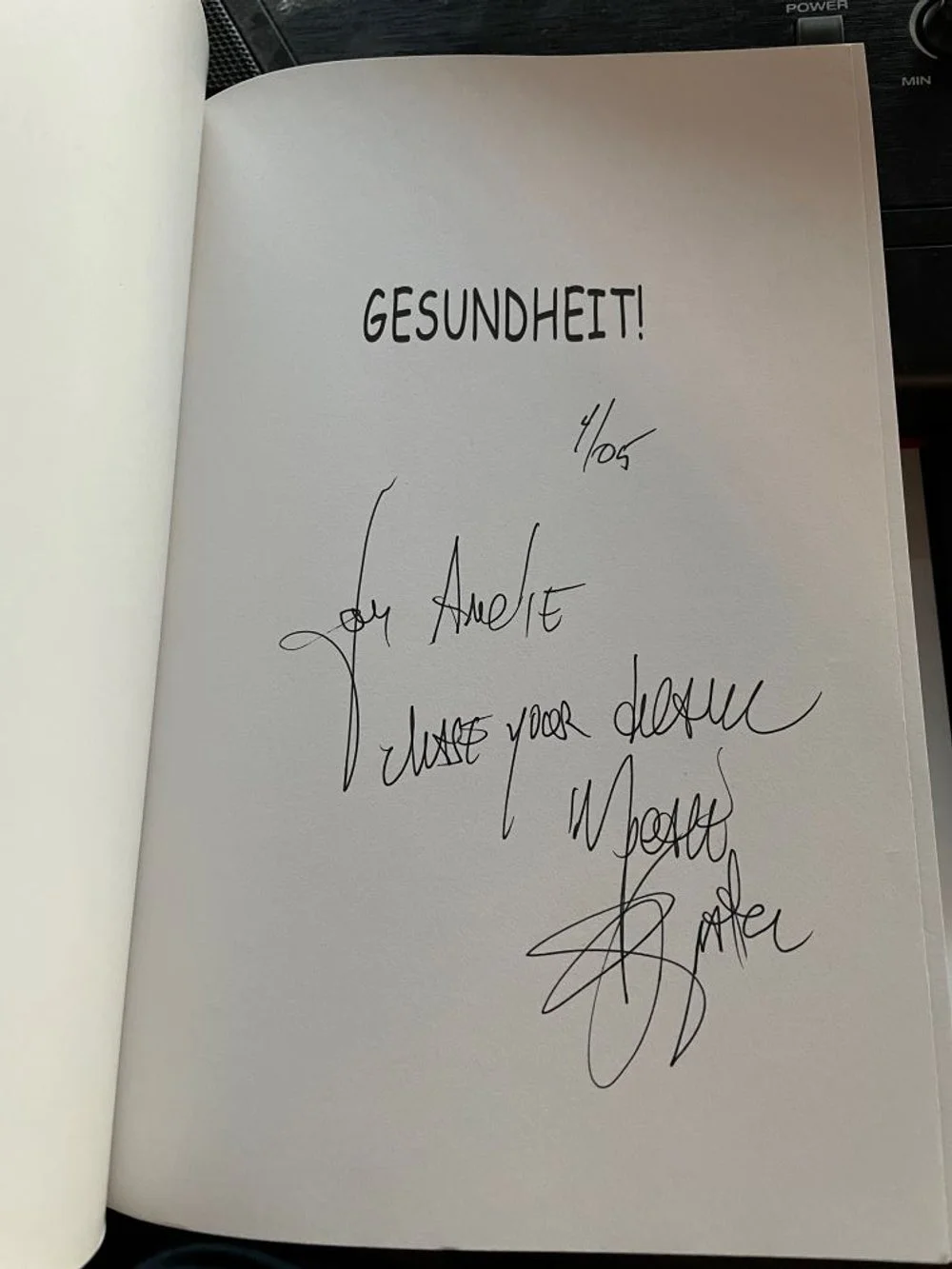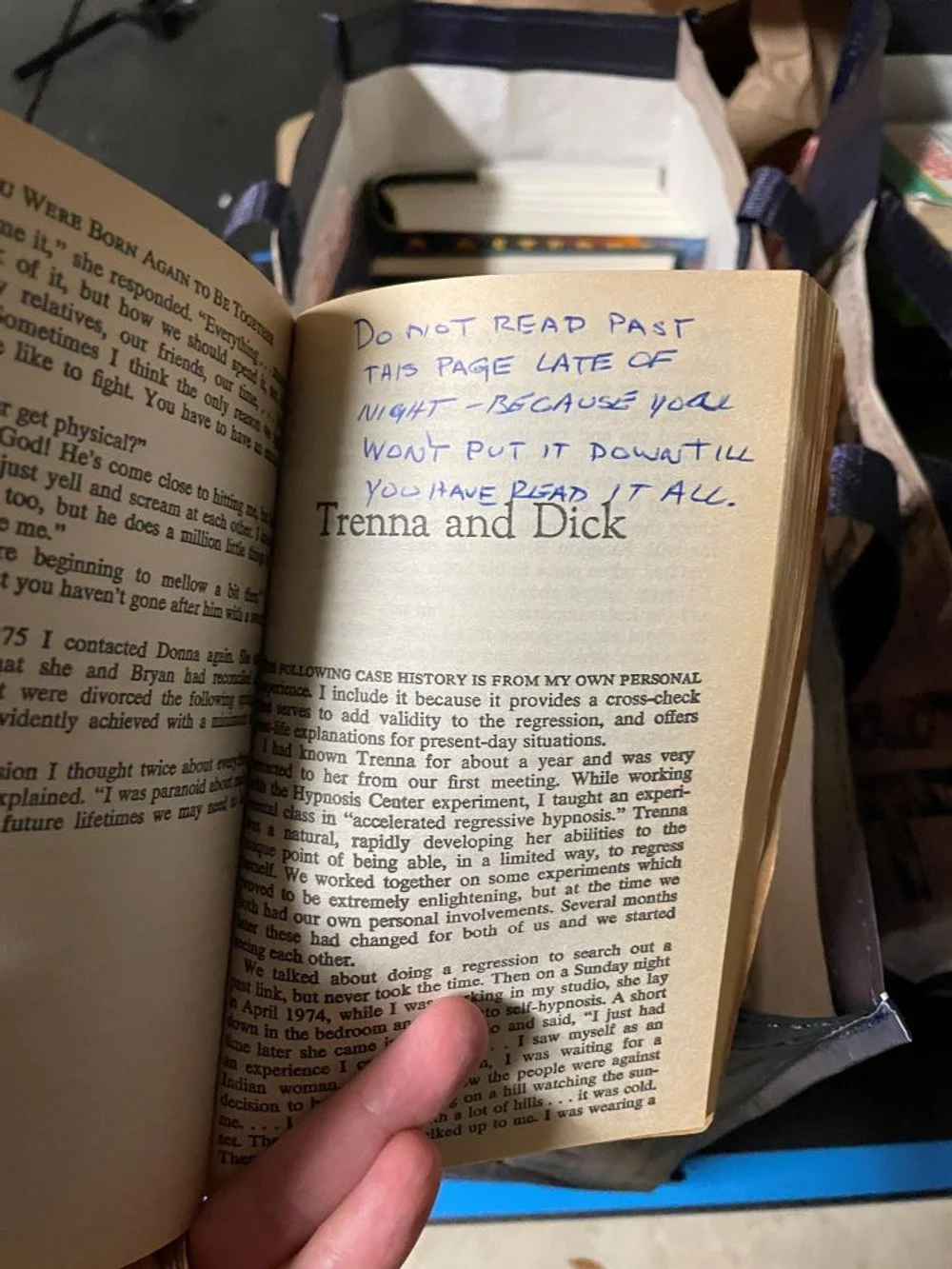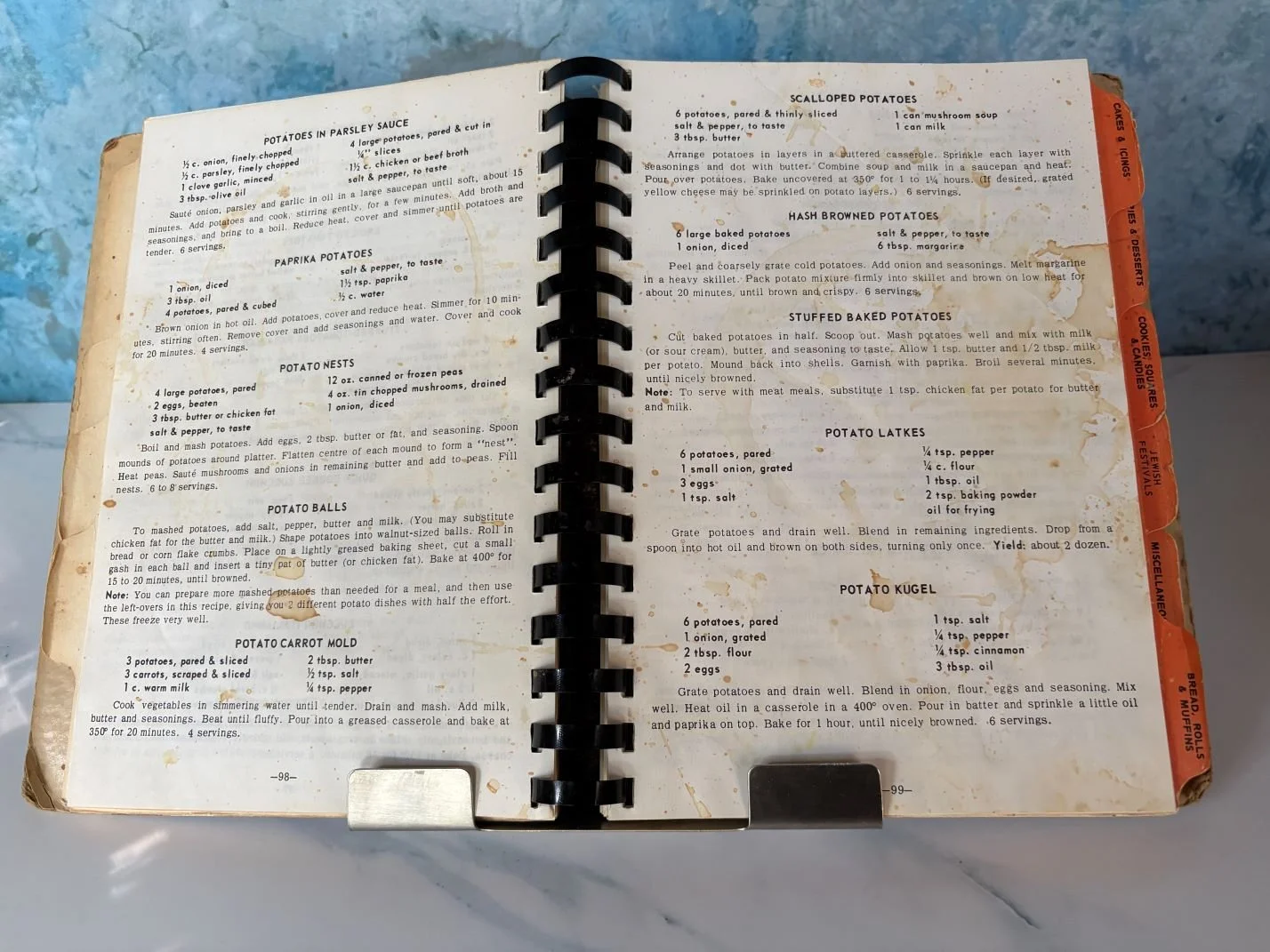Writing in books
This is not a typical blog post, but it is certainly too long to be a social media post! I started thinking about people writing in books, and these are my musings on the topic.
It started when I saw a post by Jenny Lawson, a local writer and independent book shop owner, in which she talked about some books she had purchased from the late Shelley Duvall’s estate.
Picture from Jenny Lawson’s Instagram feed, @thebloggess
When she acquired a book, Shelley Duvall had the habit of writing her name, the date, and the city in which she was at the time. In her case, it increased the value of the book because she is famous. (Jenny Lawson is now contemplating doing the same thing, and she is famous enough that there would be a market for it.)
This got me thinking… When is writing in a book okay, and when does it take away from the value of the book? I personally never write in my books; when I make a modification to a recipe, for example, I write my comments on a sticky note and put that on the page, instead of writing directly in the book. When I buy a used book, I certainly prefer it if it hasn’t been marked up. Used children’s books bearing a gift inscription on the inside cover page always make me sad. So, us non-famous folks should just refrain from ever marking up the pages, right?
A few days after that, something else happened that changed my mind about it. I went to see the Low German Bible from 1614 and noticed that it was marked in some spots. The most notable is the name of one of the owners, Johan Schwarting, written on the inside cover along with the inscription “my book” in German. He acquired this Bible when it was already over 200 years old. A few other pages inside the Bible have notes that someone scribbled in the margin. And at this point, centuries down the line, I think that those hand-written notes automatically make the book more interesting, because it’s like a time capsule that makes us think about people who lived so long before we did.
There are some types of markings that we all agree are good. Like when a book is signed by the author, that automatically makes it better, right?
Does it make a difference if the note was meant strictly for the person who wrote it versus meant for whomever might read it later?
There are also some markings that would have significance to specific people, like if a loved one wrote the note. It could also be food residue from making latkes on a bubby’s recipe, and it just makes you think of her and her delicious latkes whenever you see it.
Is there a point after which markings become significant, or a positive thing in a book? I’m thinking that we would give significance to anything older than 100 years or so, right? Except, perhaps, in the case of a random person marking up what would otherwise be a pristine first edition of a now-famous work?
What is your policy about writing in books?
Hi there! I’m Amélie, a professional home organizer in San Antonio, Texas. I help people like you declutter their home, organize their belongings, and simplify their life. I love cleaning out a closet and removing a carload of donations from a home! My goal is to help you create a functional space that will make your life easier and more peaceful.
Interested? Check out my personalized services or book your complimentary consultation!









